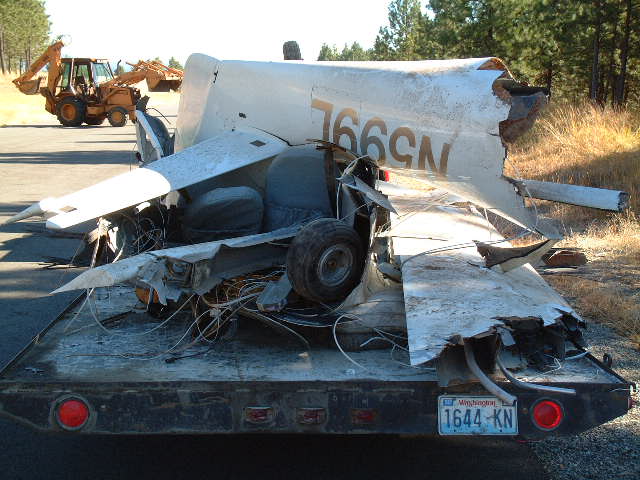|
|
Colyn writes:
<<
It does seem that doing something to prevent the fuel from spewing out
of the fuel lines would be useful for some crash scenarios.>>
I am having trouble imagining any scenario where you would have a line
rupture and not a fuel tank breach.
The attached photo shows N599L loaded for its trip to the salvage yard.
The root of the left wing is just above the license plate and the right
wing aft spar with the flap still attached is just behind the main tire
and in front of the seats. This plane had approximately 60 gallons of
fuel at the time of the crash but there was no fire. Immediately after
the crash the electronics were still active (the EFIS PFD was
accurately showing the plane inverted) and the fuel pump was still
running. If there had been any fuel to pump it would have been pumping
it into the engine compartment. Given that one wing disintegrated into
parts you could pick up with one hand and the other was torn in two I
can't imagine any fuel system that would have maintained integrity.
The surviving copilot only suffered a broken ankle and minor abrasions
and contusions.
I am a big fan of safety BUT I do not have a lot of hope for a
practical way of keeping fuel safe during a crash. The header tank is
the only place where a practical solution may be possible but that is a
task for the header tank experts among us.
Regards
Brent Regan

Salvage 2.JPG
|
|